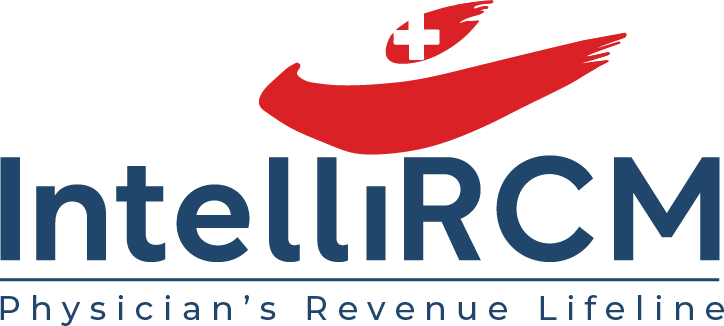
By intellircm 3rd Oct 2022 Blog
Did you know that roughly 14% of all medical claims get rejected? That equates to over 200 million claim denials every day. For tips on how to prevent claim denials, take a moment to review this guide.
First, let's discuss the root causes of claim denials. Are there patterns to the claim rejections you receive? Are there skills deficiencies within your staff? Are there other root causes?
What Are the Root Causes of Coding Denial?
Understanding the root cause of claim denials is effective in denial prevention. The following are the leading root causes of denial and rejection of medical claims:
Changes in Coding (new CPT or ICD codes)
Medical billing codes are routinely updated, and the coders might use outdated or inappropriate codes. That will inevitably lead to claim denials. Updating provider codes to the new CPT or ICD codes is vital to preventing denials. Also, the EHR software may be outdated as the codes change and it's essential to keep track of this too.
Varying Payer Guidelines
Coders need to be aware of each payer-specific guideline. For example, a payer may say that a provider cannot perform a specific procedure unless they meet certain criteria.
If the payers' software is out-of-date with the new guidelines, staff will have to rework the claim causing a delay in payment. Unfortunately for the coder, this burden always falls on their shoulders.
Disparate Systems and Processes
Having multiple processes and systems in a provider organization promotes inefficiency. That can lead to the untimely filing of claims. Associating the disjointed systems with EHR system upgrades can cause a backlog in A/R, causing denials to pile up.
Transitioning into a new system causes numerous interruptions that may require several edits. These edits can be overwhelming, causing charts to get held up and not getting billed. Until this data merges from different systems into one centralized system, claims will likely be inaccurate or incomplete.
Complex Claim Processing
Two noteworthy aspects cause claim processing to be complex. One is the increase in the number of insurance plans and products. Sadly, high deductible health plans (HDHPs) shifted a more significant portion of financial responsibility to patients.
Top Reasons for Coding Denials
The following are the top reasons medical claims get denied due to coding issues:
Medical Necessity
Sometimes medical necessity will result in coding denials. For instance, if a doctor orders a test but they (or other staff) don't document the reason for the test, the result is a claim denial.
If a patient comes into the Emergency Department and ends up needing same-day surgery, the complication code might not pass medical necessity, which will cause a coding denial.
Modifiers
Modifiers are how providers report or indicate they performed a procedure or provided a service that was altered due to unforeseen circumstances but didn't change in definition. When a modifier is not used correctly or is missing, it could result in claims denial.
Hard Code/Soft Code
Both coders and charge analysts may add the same code. That can cause a rejection on the editing side. Sometimes, the coder won't see the hard code before being transferred back to the Health Record Management Software, which creates confusion.
Incorrect Patient Information
Accurately capturing patient demographic details is one of the most underrated functions in the revenue cycle process. Not only does this captured data shape the base for the medical record, but it also impacts insurance claim payments.
Your patient information capture must be error-free for clean claim submissions. It aids in quick claims processing by payers. If this information is incorrect, this will lead to claim denial.
How To Avoid and Prevent Denials
Here are the things you can do to avoid and prevent claims denials:
Identify and Categorize the Causes for Denial
Analyzing denial reasons and identifying the process that led to them is essential. Denials occur for numerous reasons. Yet, most errors happen in the front end of medical billing and coding processes.
Once you’ve identified the cause, you can segment them by preventable and non-preventable denials. Then you can focus your effort on areas where you can avoid rejection.
Also, you can come up with best practices to improve those areas causing denials. Here are some common places to look at:
- Errors in patient information
- Duplicate claims
- Inadequate documentation
- Timely filing issues
- Coding and billing errors
- Outdated coding
- Payer policies and procedures
- Payer behavior
Keep Training and Educating Your Staff on Edits and Denials
An effective denial prevention strategy includes pinpointing the root causes of claim denials and developing a dedicated team to handle denials.
They will be responsible for analysis, writing appeals, and resubmitting claims. A sound understanding of specific payers and edits will relieve your coder of the stress of extensive research.
Your team needs to take full responsibility for correcting each case regardless of where it occurs or its root cause. Your coders must have access to the latest resources and updates on coding, including things like software and online references.
Verify Insurance Before Every Visit
Early verification is vital to preventing denials. Never assume a long-time patient has the same insurance information as their last visit. Getting a new job, a change in insurance providers and policy changes in coverage are a few reasons why it’s necessary to verify insurance information.
Accurate, Appropriate Documentation
Denials are often a result of incomplete documents. That includes information such as:
- Patient data
- Treatment
- Medications
- Procedures
- Insurance information
Set up a comprehensive documentation procedure. That way, you ensure that claims contain accurate information before filing.
Outsource Your Coding Department
Outsourcing your RCM to a reputable company like IntelliRCM will help develop a custom RCM strategy that includes denial management will help you avoid claim rejection.
Their highly-trained personnel stay on top of payer rules and ensure accurate claim submission. Medical billing companies will help reduce denials by promptly reviewing them and keeping regular communications with payers.
IntelliRCM Denial Management Service
We cannot overstate the significance of denial management in the healthcare industry. Claims payments give your office or clinic the revenue it needs to operate.
Unfortunately, claims get denied. Does your facility have a holistic plan in place for the prevention of claim denials? If not (or you're unsure), now's the time to act.
Contact us today to schedule a call with one of our experts to see how we can help you with your denial management.





